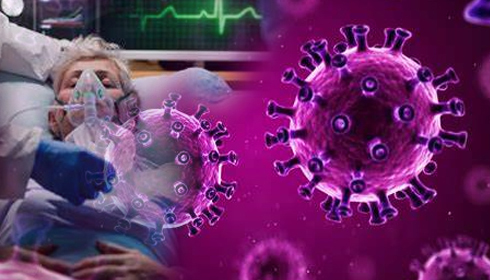
Spike Protein's Persistence in Brain Explains Long COVID Neurological Symptoms: Study
In a major development, Helmholtz Munich and Ludwig-Maximilians-Universität (LMU) researchers conducted a pioneering study that uncovered a mechanism that may explain the neurological symptoms associated with lengthy COVID. The findings indicate that the SARS-CoV-2 spike protein can stay in the skull's bone marrow and meninges, the brain's protective layers, for up to four years after infection, potentially causing chronic inflammation and raising the risk of neurodegenerative disorders.
The study, which was published in Cell Host & Microbe, shows that the spike protein works with ACE2 receptors, which are common in the bone marrow and meninges of the skull. "This may make these tissues especially vulnerable to the long-term accumulation of spike protein," says the study's first author, Dr. Zhouyi Rong.
Prof. Ali Ertürk's research team used a unique AI-powered imaging technique to visualise the spike protein in three dimensions, revealing previously unknown distributions in tissue samples from COVID-19 humans and mice. According to the researchers, this continuous presence at the brain's borders may lead to long-term neurological impacts like accelerated brain ageing.
"Our data also suggest that persistent spike protein may lead to a loss of five to ten years of healthy brain function in affected individuals," says Prof. Erturk, Director of Helmholtz Munich's Institute for Intelligent Biotechnologies.
The study also focuses on the protective effects of mRNA COVID-19 vaccinations, specifically the BioNTech/Pfizer vaccine, which greatly lowers spike protein buildup in the brain. Experiments on mice revealed a 50% reduction in spike protein levels in vaccinated versus unvaccinated animals.
"This reduction is an important step," explains Prof. Ertürk. "However, residual spike protein persists, posing a toxic risk to the brain." Our findings indicate the need for further medicines to properly address the long-term burdens produced by SARS-CoV-2 infections."
Although the researchers generated the findings from mice models, they emphasize the need for additional research to determine their applicability to human long-term COVID patients.
Up to 60% of people worldwide have contracted COVID-19, with an estimated 5-10% experiencing long-term effects. This means that nearly 400 million people are in danger of harboring large amounts of spike protein.
"This is not just an individual health issue—it is a societal challenge," emphasizes Prof. Ertürk. Persistent spike proteins may cause persistent brain inflammation, strokes, and other neurological disorders, with serious consequences for global health care systems.
The study's findings pave the way for improved identification and treatment of COVID-19's long-term neurological consequences. The skull's bone marrow and meninges are easier to examine than brain tissue, making them interesting targets for diagnostic and therapeutic therapies.
Using protein panels to detect specific inflammatory markers or spike proteins in cerebral fluid or blood plasma, researchers hope to develop early diagnostic tools and targeted therapeutics. "Such markers are critical for the early diagnosis of COVID-19-related neurological complications," says Prof. Ertürk.
Prof. Ulrike Protzer, a senior virologist at Helmholtz Munich and the Technical University of Munich, discusses the study's broader ramifications. "These critical insights shed light on brain invasion pathways and long-term host involvement, which are of great scientific and societal significance," she explains.
As the long-term consequences of COVID-19 become clearer, this study highlights the importance of adopting comprehensive solutions to address the pandemic's neurological problems. Researchers are building the groundwork for more effective treatments and prevention strategies by understanding spike protein accumulation routes and their consequences.